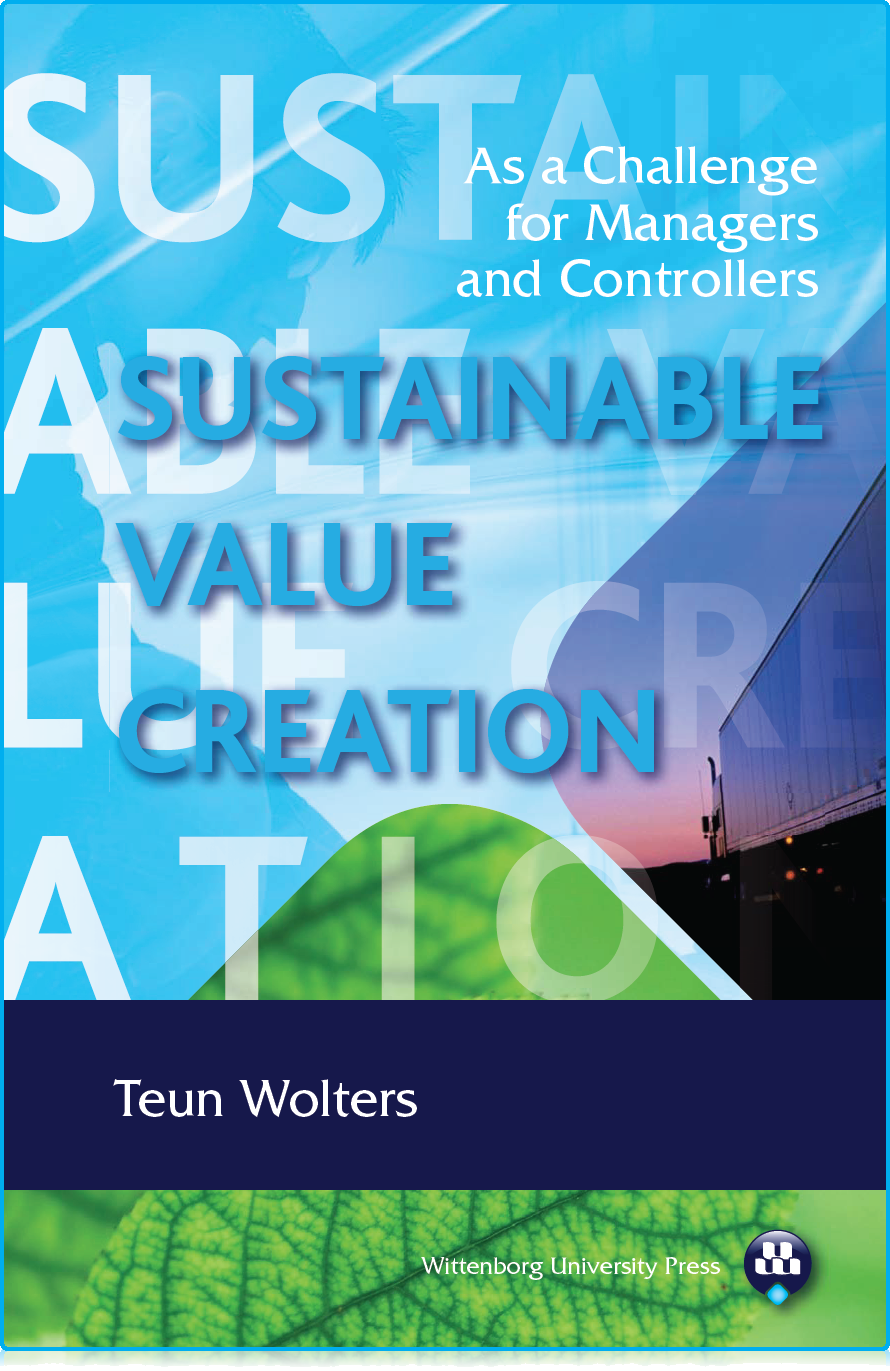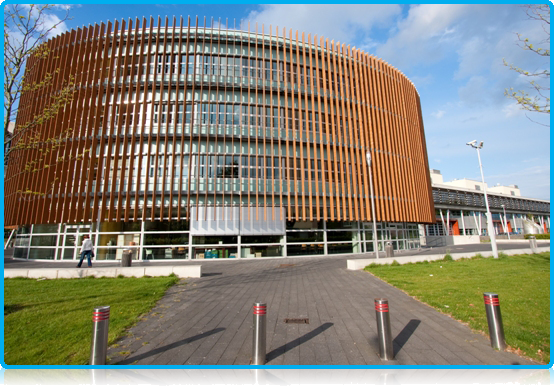Research and Higher Education at a University of Applied Sciences
 Why Study Business Administration? - Dr Teun Wolters, senior lecturer and head of WUAS’s Research Centre, does not believe young people entering today’s business market only care about making money. In fact, dare to suggest this and he will politely disagree. “You say they are young and just thinking about profit? This is not a necessary connection. To me young people seem to be more idealistic and not just focused on profit. They want to have the feeling that they are doing something good. Not just for themselves but for wider society.
Why Study Business Administration? - Dr Teun Wolters, senior lecturer and head of WUAS’s Research Centre, does not believe young people entering today’s business market only care about making money. In fact, dare to suggest this and he will politely disagree. “You say they are young and just thinking about profit? This is not a necessary connection. To me young people seem to be more idealistic and not just focused on profit. They want to have the feeling that they are doing something good. Not just for themselves but for wider society.
Dr Wolters’ book Sustainable Value Creation as a Challenge to Controllers and Managers was launched in June this year - the first book printed by WUAS Press. He hopes the book, which he uses in his lectures on ‘Innovation and Technology’, will serve as a basis for further research and is already developing a new publication which will examine the matter in more detail.
Nonetheless, if you are not yet on board with sustainability in your business plans, dr Wolters provides a few reasons in his book why every business - big or small - should care about creating a green economy:
• There is a growing shortage of raw materials. We have to save and we have to find other ways of doing things.
• Companies will ruin their own profit if don’t pay attention to the matter.
• It creates more and higher quality jobs.
• It is very satisfying, knowing that on balance you have contributed to a positive value in
this world, rather than a negative value.
In an interview, dr Wolters elaborated on these ideas.

What is sustainable value creation exactly?
You have to create something that has value, that is sustainable and will not disappear within a few months. The other side, the one that I emphasize, is that there are a lot of production that seems to benefit the owners, but create lots of negative value somewhere else in the world. So we are destroying value rather than creating value. My approach is to make sure that value creation in one company or region is not to the detriment of wealth created somewhere else.
When did the concept of sustainable value creation take off?
By the end of 1980’s the United Nations developed the concept of sustainable development in the document “Our Common Future”. That was the starting point and from there a lot of thinking developed. Later on John Elkington (an advisor in the area of sustainable development) came up with the concept of the three P’s - people, planet and profit - which had a great influence on thinking in the industry. Many companies were inspired to come up with sustainable production methods and for a very long time there was more discussion then reality. Today we - especially the large companies - cannot escape it. There is a growing shortage of raw materials. You have to save, you have to find other ways of doing it. And companies will ruin their own profit if don’t pay attention to the matter.
Why should business students care about sustainability?
What is the sense of working hard for many years and coming to the conclusion that on balance you have created a negative value. You have not contributed to creating a positive value. We are depending on the younger generation. They have to do it.
How do we convince more people to conduct business in this way?
Partly by just working on it and integrating it in education. That is still a big problem. Many universities have some modules devoted to it but there is still a wider task to integrate it further in education.
What do you mean?
It means it should not only be a separate module. It should be integrated into the existing modules. That is taking place slowly but surely.
In Europe?
I think internationally. I am quite sure that it is happening in other countries too. Climate change is an issue everywhere and it is the poor who suffers the most. For example, a farmer in Africa think: “I have to plant in September because I expect the rain in October.” The rain does not come and his lands are spoiled. Two months later he gets enormous rains and flooding, so everything is destroyed. These are the things we have to face.
How does your book contribute to the wider debate?
This book reflect the debate and the materials that are there. I pay attention to role of strategic management, supply chain management and environmental management. Also to the role of financial directors and controllers. Some people think “Oh, I am in finance so I’m not involved.” They are particularly involved. For instance, to make sure environmental investments are not ignored. Sometimes these people have habitual ways of calculating benefits and costs of projects. Important environmental projects are just discarded. If, for instance, you take a longer time-horizon many environmental projects can be profitable. If you leave everything to the environmental manager then it is easy to attack that person. The controller and the environmental manager should work together to come up with feasible, attractive and beneficial environmental solutions.
What is the main message of the book?
The main message is there is no time for business as usual. We have to work on corporate sustainability.
 Has it been stunted by the economic crisis?
Has it been stunted by the economic crisis?
In the beginning it was not clear that the crisis would linger so long. Many companies came up with special investment programs to stimulate the economy and many paid attention to sustainability in those investment plans. The most outstanding country in this was South Korea. On the other hand if you take the investment plans of all the countries together, then you see sustainability is still a small percentage. So there is mixed efforts. In the United States, for example when Arnold Schwarzenegger was governor in California, he promoted sustainability and in the literature is much praised for his efforts. California, which is situated in a valley, has a big problem with air pollution and has had for many years very strict regulations on cars but even on paint. There is a large environmental technology sector there. But internationally, in a political sense, the US has not taken leadership and that is a pity.
Any last thoughts?
Sustainability is simply good economics. It is not just a hobby for idealist. We need entrepreneurs to come up with new ideas on how to create a sustainable world. That’s why it is of paramount importance to integrate it in our business education.
Dr Wolters book Sustainable Value Creation as a Challenge to Controllers and Managers can be obtained through Wittebborg University Press wup@wittenborg.eu
Links: http://www.wittenborg.eu/head-wittenborg-research-centre-dr-teun-wolters-development-centre.htm
WUP 1/12/2013
Interview by Anesca Smith
©WUAS Press
Anesca Smith is a Final Year IBA Hospitality Management student and has been employed as a writer for Wittenborg since May this year. Anesca is a journalist, writing for newspapers in her native South Africa, however is looking forward to working in the hospitality industry. Find out more at http://anescasmith.com/